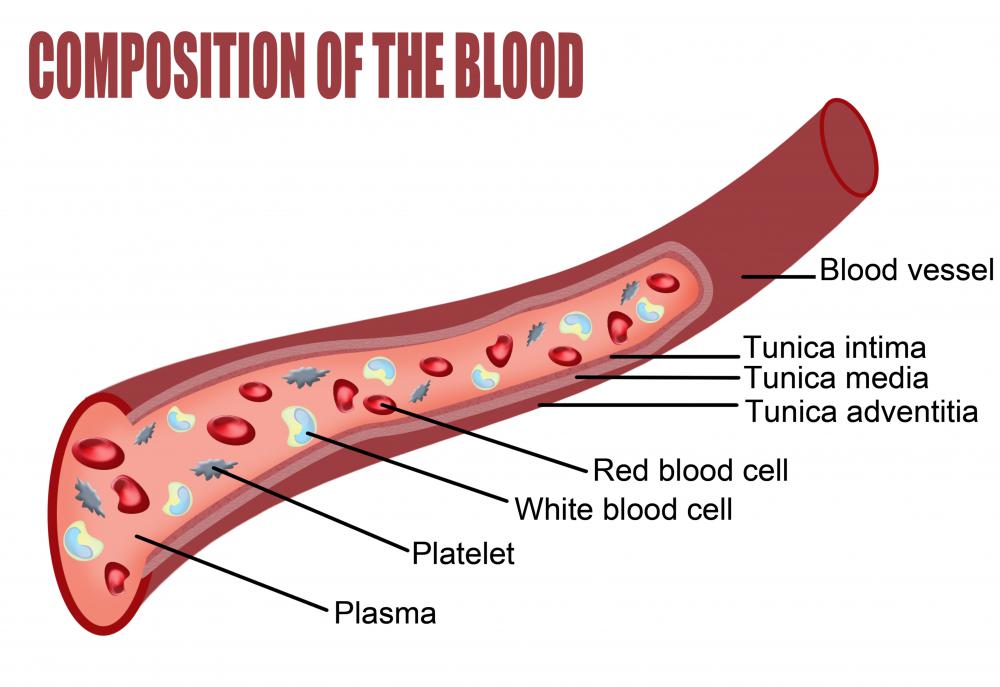At WiseGEEK, we're committed to delivering accurate, trustworthy information. Our expert-authored content is rigorously fact-checked and sourced from credible authorities. Discover how we uphold the highest standards in providing you with reliable knowledge.
How do I Prevent Endothelial Dysfunction?
The endothelium is a thin membrane separating the body‘s blood from the surrounding tissues. Although it is a type of lining, it is more than a passive wall or barrier. The endothelium is responsible for the transmission of signals and responses that determine chemical reactions and maintain the homeostatic balance of blood vessels. It must be kept well lubricated and clear of debris at all times for it to function properly. First and foremost, this involves a person getting regular exercise and following a healthy diet.
The primary component responsible for maintaining a healthy endothelium is nitric oxide (NO). NO is produced in the body by amino acids, the chief of which is arginine. Maintaining a healthy diet rich in arginine can help in preventing endothelial dysfunction. Dairy products, seafood, fresh seeds and nuts, and legumes are all rich in arginine. L-arginine is also available as a supplement.

Endothelial dysfunction is a type of vascular degeneration and can either cause or be caused by medical complications such as diabetes, atherosclerosis and hypertension. The endothelium can usually be kept healthy through regular diet and exercise. When healthy, it allows the blood to flow freely, the arterial and venal walls to dilate, and the blood to thin or coagulate as necessary. This is accomplished through an elaborate chemical network primarily orchestrated by NO.

A reduction in the amount of arginine and nitric oxide, which are produced by proper diet and the demands from muscle tissue and brain activity, can result in endothelial dysfunction. It also occurs as a result of the healing process when calcium and fatty tissue build up and restrict the blood flow. High cholesterol levels, diabetes, hypertension and nicotine lower NO levels, restrict the flow of blood and place a greater burden on all body functions.

Another factor in the development of endothelial dysfunction appears to be vitamin deficiency. Low vitamin D levels have been associated with both diabetes and heart disease. Vitamin D is an essential component in bone development. Another vitamin responsible for cardiovascular health is K. Vitamin K aids in the production of gla proteins from glutamate, which functions similarly to NO in its transmission of signals throughout the body.

Healthy endothelium maintenance can be accomplished thorough proper diet and exercise. Dietary supplements such as L-arginine, arginine alpha-ketoglutarate and vitamins D and K can also help reverse negative symptoms. Professional, medical advice should be sought prior to taking any nutritional supplement.
AS FEATURED ON:
AS FEATURED ON:















Discuss this Article
Post your comments